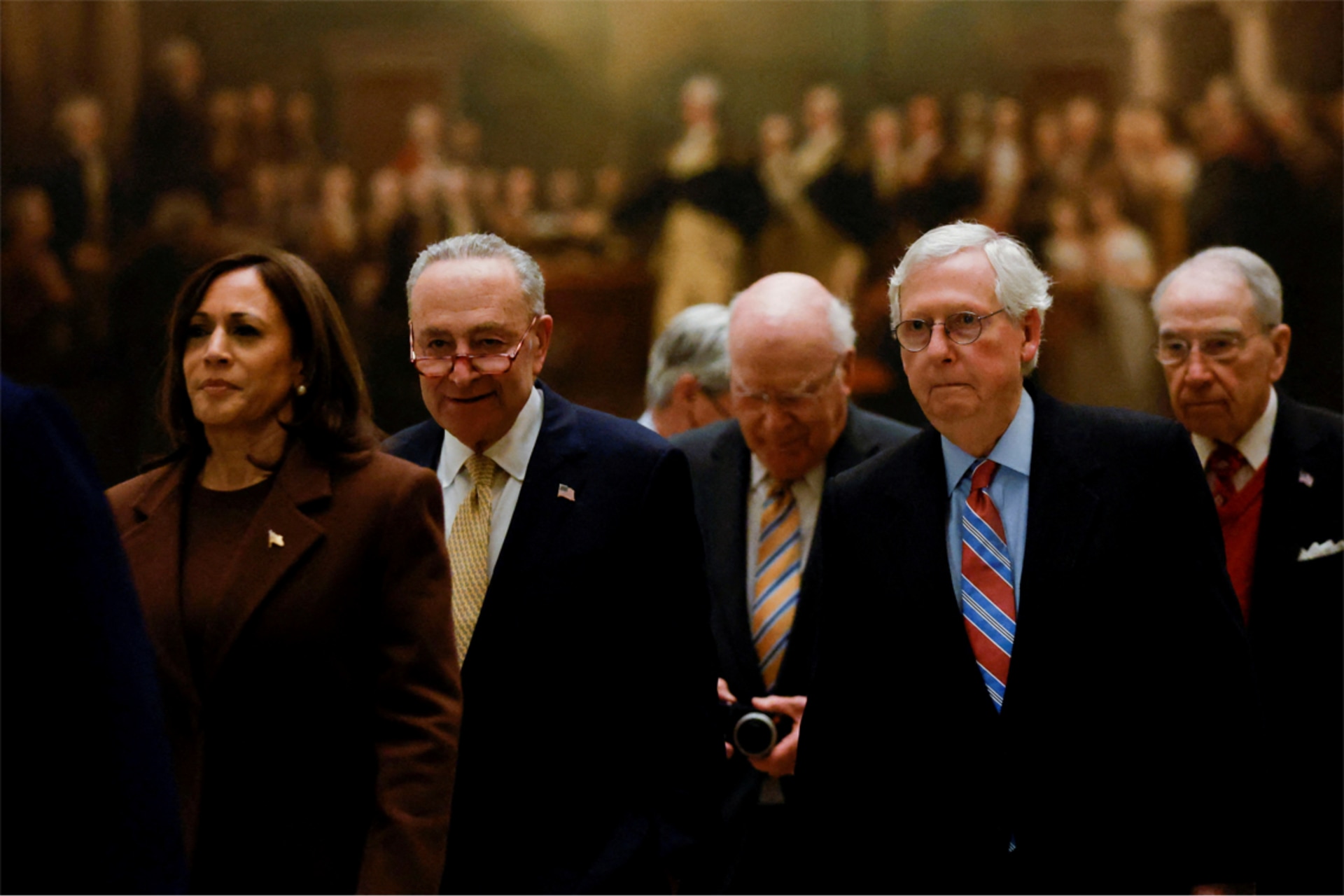Foreign Policy Bipartisanship’s Mixed Blessings
For the moment, the two parties are in broad agreement on some of the biggest foreign policy questions facing the United States—but this state of affairs is not without its dangers.

By experts and staff
- Published
Experts
![]() By Christopher M. TuttleSenior Fellow and Associate Vice President of Studies
By Christopher M. TuttleSenior Fellow and Associate Vice President of Studies
In the ongoing quest for remedies to the myriad maladies afflicting American governance, “more bipartisanship” emerges time and again in recommendations offered in not just editorials, reports, and panel discussions at think tanks, but around kitchen tables across the country.
It’s understandable. Poll after poll shows a nation of two minds—a body politic not just divided, but so intensely divided that it’s negatively affecting American workplace environments, social lives, and even families. If we could just achieve more bipartisanship, the thinking goes, we could get both our government and our culture back on track.
Interestingly, however, while Democrats and Republicans in Congress are generally more at odds ideologically than they have been in decades, foreign policy stands out as an area where finding much daylight between the parties on what are arguably the biggest issues of our time is increasingly difficult.
On China, not only has the Joe Biden administration largely maintained the aggressive economic policies the Donald Trump administration implemented, it has cast the U.S.-China relationship in stark autocracy versus democracy terms worthy of a campaign speech by U.S. Sen. Marco Rubio (R-FL). Concerns about China have led to a surprising level of agreement on industrial policy as well, with the Senate passing the “United States Innovation and Competition Act of 2021” in March by a sizable bipartisan margin that included a “yea” vote by no less than Minority Leader Mitch McConnell (R-KY).
When it comes to Russia, the days of a Democratic president telling his campaign opponent that the ‘80s called to ask for “their foreign policy back,” or President Trump upending years of Republican unity on the threat posed by Vladimir Putin and unambiguous support for NATO, are over. The February invasion of Ukraine has galvanized solid bipartisan congressional support for a much harder line on Russia and support for the transatlantic alliance, embodied by, among other steps, a $40 billion assistance package for Ukraine, which the Senate passed the week before last by a vote of 86-11.
On international trade, Republicans have shown virtually zero signs of returning to the pro-free trade policies that for decades served as a central component of their economic doctrine that President Trump jettisoned. And Democrats appear to be hardening their longstanding skepticism toward trade, driven in part by fervent anti-globalization voices that are on the rise within the party. A colleague summed it up recently: “Republicans have turned against trade because their voters think it’s bad for Americans. Democrats dislike trade more than ever because their voters think it’s bad for not only Americans, but bad for the rest of the world.” This may be an oversimplification, but at its core it tells one where potential trade agreements are headed in the near future: nowhere, and fast.
Bipartisanship is not inherently good nor bad. While most advocates of the parties working together applaud Democrats and Republicans for seeing eye-to-eye on China and Russia, the same group laments the bipartisan opposition to new trade agreements. And history shows that broad agreement, even when initially hailed, can often be a devil in disguise. The Gulf of Tonkin Resolution passed the Senate 88-2, the 2002 authorization for the use of military force in Iraq passed the Senate 77-23, and congressional leaders in both parties for decades stood firm on Afghanistan policies that in the end saw questionable progress and the Taliban back in power.
For presidents faced with bipartisan agreement on many of the most significant foreign policy issues of their day, the challenge is to chart a balanced course in the face of calls from powerful voices on both sides of the aisle to “go further.” Partisan criticism often provides an important check on ambition, and when that check is absent, oversteering becomes harder to resist. While the tempest of polarization in the ocean of American political life continues to rage, foreign policy—for the moment—represents a backwater where the waves may not be quite as high and the winds not quite as punishing. It is in these moments that foreign policy leaders must maintain a higher level of vigilance, remembering that the way forward urged by the loudest members of any consensus can often be just as treacherous.
